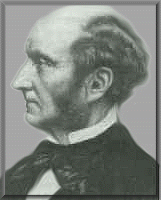
Since Humans are capable of both kinds of pleasure it is fallacious (i.e., the straw man argument) to condemn it on the grounds that it reduces humans to animals. Humans are capable of experiencing pleasures which animals are not, and that pleasure is superior to animal pleasure. (i.e., Epicureanism) Thus, it is better to be a dissatisfied human than a satisfied animal.